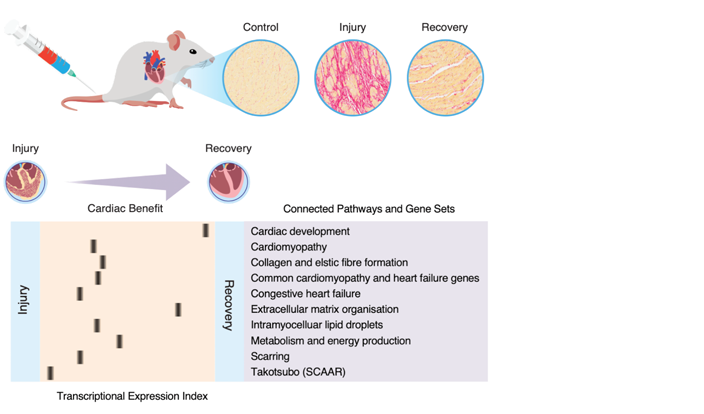Also, known as broken heart syndrome, Takotsubo syndrome is a condition that is also shaped by emotional and physical stressors. Despite many of the modern genetic advances, the genomic or more precisely epigenetic world remains largely uncharted with regard to cardiomyopathy and until recently, the broken heart remained a story of that world.
Takotsubo syndrome (TS) is a stress-induced non-ischaemic cardiomyopathy. Also known as broken-heart syndrome, TS is characterised by transient left ventricular (LV) dysfunction independent of obstructive coronary artery disease. TS is a polygenic condition and nowhere is this more evident than in the use of positive inotropes, such as isoprenaline (ISO) in pre-clinical models. Stimulation of the SNS underpins a common pathway in TTS given the frequency of stressful physical or emotional triggers before the onset of cardiac signs or symptoms.
There is no standard therapy for broken-heart syndrome because the mechanisms underlying the condition remain unknown. Furthermore, there is no consensus on predisposition for Takotsubo and our goal was to better understand the regulatory mechanism as a first step towards improved treatment plans. Vorinostat, a drug approved for cancer treatment by the US Food and Drug Administration has previously been shown to improve cardiopulmonary function. This project examines the therapeutic benefit of vorinostat in a pre-clinical model of ISO-induced cardiomyopathy by targeting the lysine acetylation/deacetylation (Ac/Dc) axis.
Cardiac injury influenced by writer and erasers of lysine acetylation


